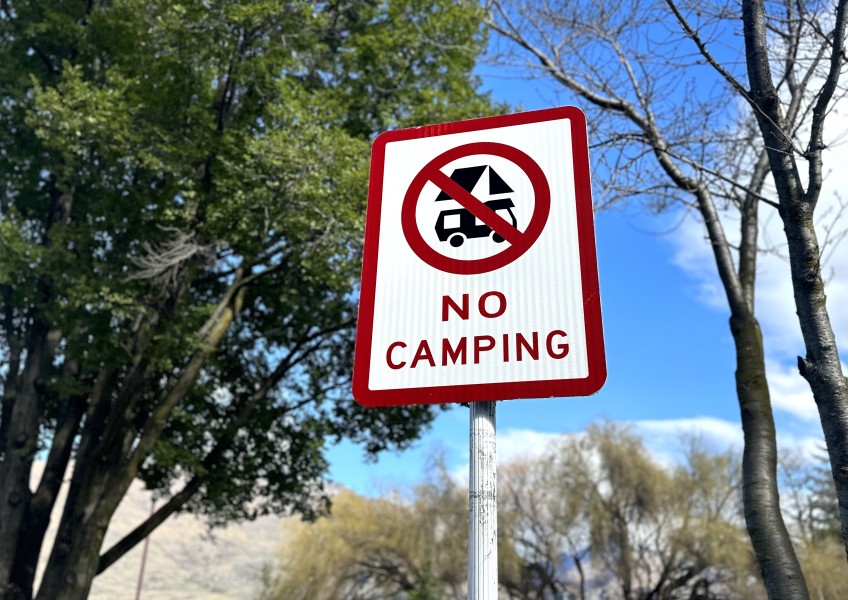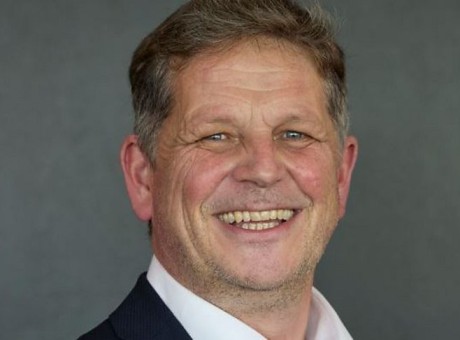Mayor's advice to homeless: get an agency letter to avoid fines

A social service provider has no knowledge the council has been directing people to his agency for proof of homelessness to contest freedom camping fines, while a housing advocate accuses the council of "hiding all the loop holes".
Queenstown Lakes District Mayor Glyn Lewers is standing by his council's requirement anyone contesting a freedom camping fine provide proof from community support workers of their living situation, despite earlier promising leniency for anyone falling victim to his district's accommodation crisis.
Mr Lewers tells Crux to consider waiving the $400 fine local workers living in vehicles must produce documentation to show they have sought help from social service agencies.
But this is news to Andrew Wilson, the community ministries director at Queenstown's Salvation Army, one of the groups the council is suggesting houseless workers engage with, alongside Happiness House.
The requirement is extra work for these already swamped agencies.
Mr Wilson says the Salvation Army is “pretty flat out”, helping families and individuals access their food bank and a variety of other support services.
He had not been aware that those contesting their fines were being directed to Salvation Army until contacted by Crux for comment, saying writing support letters was not something they had been asked to do by the council.
However on request, the organisation would be happy to help, by providing any client with a letter confirming their engagement with Salvation Army services.
Crux is aware of ten workers struggling to find accommodation who are attempting to contest $400 fines for breaching freedom camping rules introduced to stop tourists from sleeping in their cars when visiting the area and to protect the natural environment.
The mayor says providing proof of employment in the district is not enough for the council to consider dropping fines, and a person needs to be "engaging with social agencies, and engaging in a way that proves that you are a person in need”.
“I know that could be difficult because of time pressures and work pressures. But I’d say if it's genuine, that you'd find a way.”
Co-founder of the Queenstown Housing Initiative Hannah Sullivan says she was also unaware of the requirement to provide paperwork, despite plenty of time spent advocating for van-sleepers and liaising with social service agencies.
She asks the council and mayor to “stop hiding all the loop holes”.
Ms Sullivan thinks the whole process should steer clear of already stretched social service providers, especially when there is no formal arrangement or documentation or homeless checklist that has been provided by the council.
She says it should suffice for an individual contesting a freedom camping fine to show council staffers screenshots of them applying for housing, or proof of employment in Queenstown, as she knows one worker has done.
“That's enough – more than enough – evidence to base the fact that he's living in his car and homeless.
“It's a lot of admin and it's a big ask from the mayor. And if he wants something like that to be done, then he should be coming up with that himself and organising it, not telling other people to do it.”
In April Mr Lewers encouraged those struggling to put a permanent roof over their heads and sleeping in their vehicles to contest any fines from council enforcement officers, which would be reviewed on a case-by-case basis.
There was no mention of the required written proof of deprivation then, nor in a council press release in response to rule changes in June, but now Mr Lewers says it has "always been the case”.
The June press release also assures that those sleeping in their vehicles due to the housing crisis would not be targets of enforcement.

Mayor Glyn Lewers wants 'houseless' workers to provide documents to show they're struggling.
Mr Lewers says there is a council register of vehicles and license plates that are exempt from the district's freedom camping rules due to their housing situation.
“It is very difficult for the people out there enforcing the regulations at four o'clock in the morning to decide whether they're homeless or they're freedom camping.”
There are currently two vehicles on council’s list, he says, and other can apply to join them after accessing social services in the area.
He'd provided council with a certified staff photo ID, and stated he was sleeping in his vehicle due to the housing crisis.
The council regulatory officer first asked for a case worker letter from the Salvation Army or Happiness House, and without one, deemed he was not homeless so didn't qualify for any leniency.
Bart has to pay up, and if he doesn't by mid-September he's been told the matter will be referred to the courts.
Ms Sullivan has concerns about the financial impact a $400 fine would have on people caught out like Bart.
“That's a lot of money...how do you expect people to pay a bond if you’ve already taken $400 from them?”
Back at the Salvation Army, Mr Wilson says services are free and available to anyone in Queenstown, including those with a working holiday visa, and people needing help should call and book an appointment.
After that, any letter they provide would typically include what date the individual started connecting with them, what need they presented with - perhaps help with food, social support or counselling - and an end date if relevant.
He says the organisation wouldn’t make statements relating to a person's eligibility for a fine waiver or make any assessment as to their housing deprivation.
Read more:
QLDC u-turn imposes $400 fines on Queenstown's working homeless
Contest your freedom camping fines: Mayor Lewers

























